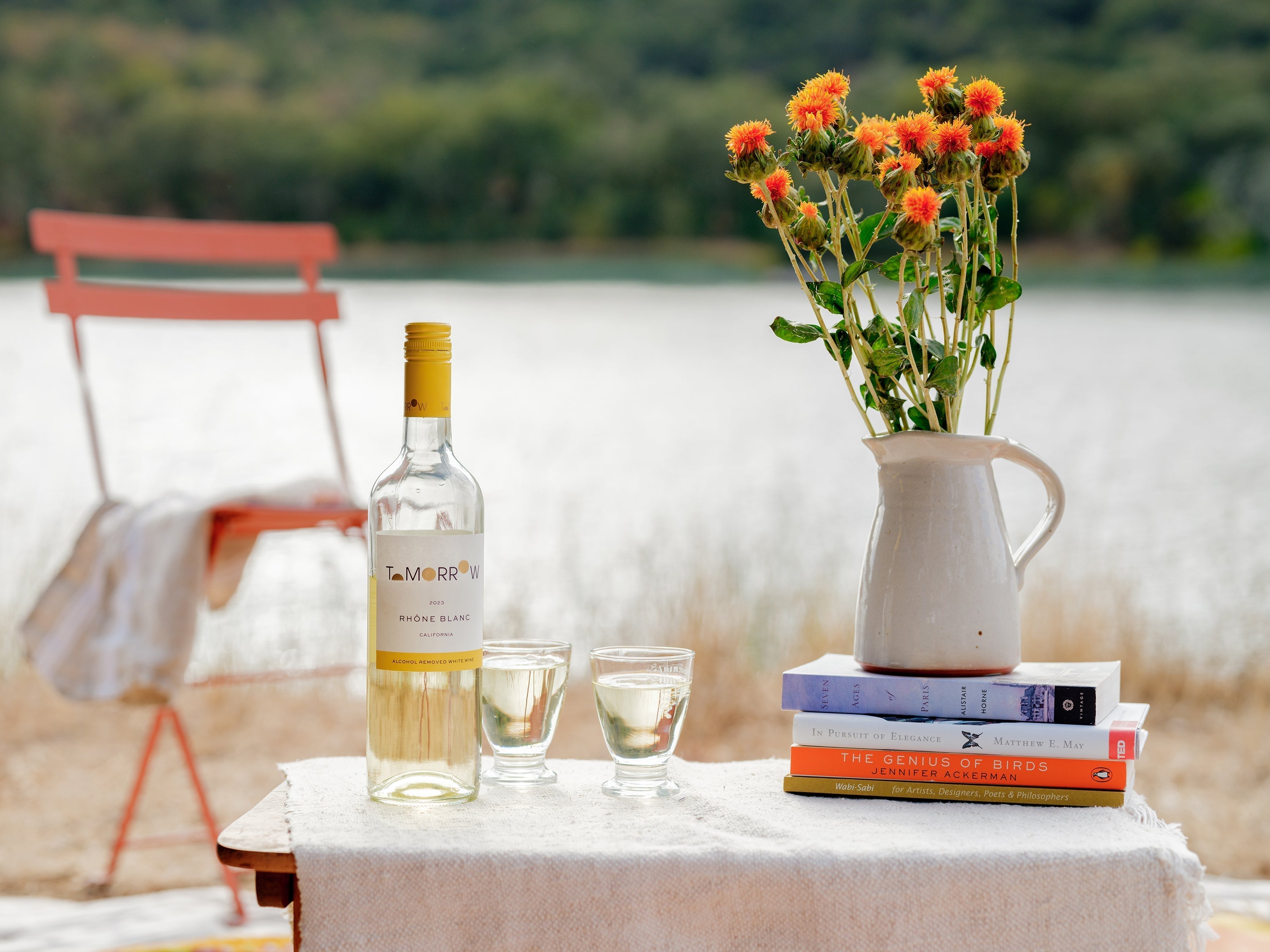
Marsanne: A Grape Rooted in History and Reinvented for a Brighter Tomorrow
Crafting a non-alcoholic wine that maintains complexity and depth requires thoughtful varietal selection. Some grapes lose their identity when alcohol is removed, while others retain their unique aromas, flavors, and structure.
Marsanne, an ancient white grape with deep roots in the Rhône Valley, stands out as a varietal that preserves its character even after the de-alcoholization process. At Tomorrow Cellars, we chose Marsanne because of its ability to deliver richness, texture, and vibrant fruit flavors—an ideal foundation for a non-alcoholic wine that truly shines.
A Storied Past: The History of Marsanne
Marsanne has a long and well-documented history, with its origins firmly planted in the Rhône Valley of southeastern France. The grape is believed to be named after the village of Marsanne, located near Montélimar in the northern part of the region. Wine cultivation in this area dates back to Roman times, with vineyards flourishing after the Romans arrived in 50 BC.
The influence of Marsanne in Rhône wines is undeniable. It plays a significant role in the renowned white wines of St-Joseph, Crozes-Hermitage, Hermitage, and St-Péray, often blended with Roussanne to create balanced and expressive wines. By the 17th century, these wines had earned a prestigious reputation, with Hermitage being particularly revered. Even Thomas Jefferson, an avid wine connoisseur, supposedly declared it "the first white wine in the world without a single exception."
Today, Marsanne remains a vital part of Rhône winemaking, with over 80% of the world's plantings concentrated in France.
Marsanne’s Journey to California
Despite its deep ties to France, Marsanne did not reach California until the 1980s, when winemakers seeking to experiment with Rhône varietals introduced it to the state’s vineyards. While it remains a niche grape in California, those who cultivate it appreciate its ability to thrive in warm climates and produce wines with richness and depth.
As of 2021, Marsanne plantings in California covered just 116 acres. This accounts for a mere 0.03% of the state’s total vineyard acreage, making it a rare yet valued varietal among winemakers who appreciate its unique characteristics.
Why We Chose Marsanne for Tomorrow Cellars
Marsanne is often used as a blending grape, valued for its rich texture and tropical notes. While some traditional winemakers view its characteristics—such as ripe banana, pineapple, and an almost oily mouthfeel—as challenging, these very qualities make it an excellent candidate for non-alcoholic winemaking.
The de-alcoholization process can strip wines of some of their complexity, leaving them thin or unbalanced. However, Marsanne’s natural richness and pronounced fruit flavors allow it to maintain structure and depth even after the alcohol is removed. The result? A beautifully textured, full-bodied non-alcoholic wine with vibrant aromatics and a lingering finish.
At Tomorrow Cellars, we believe in crafting wines that celebrate the grape’s intrinsic qualities while offering a new perspective on what wine can be. Marsanne’s long history, resilience, and ability to shine without alcohol make it the perfect varietal for our mission: to create a non-alcoholic wine experience that feels just as special as the traditional pour.
Whether you’re exploring non-alcoholic options for wellness reasons or simply seeking an elevated drinking experience, Marsanne offers a taste of history and innovation in every glass. Cheers to a brighter tomorrow!